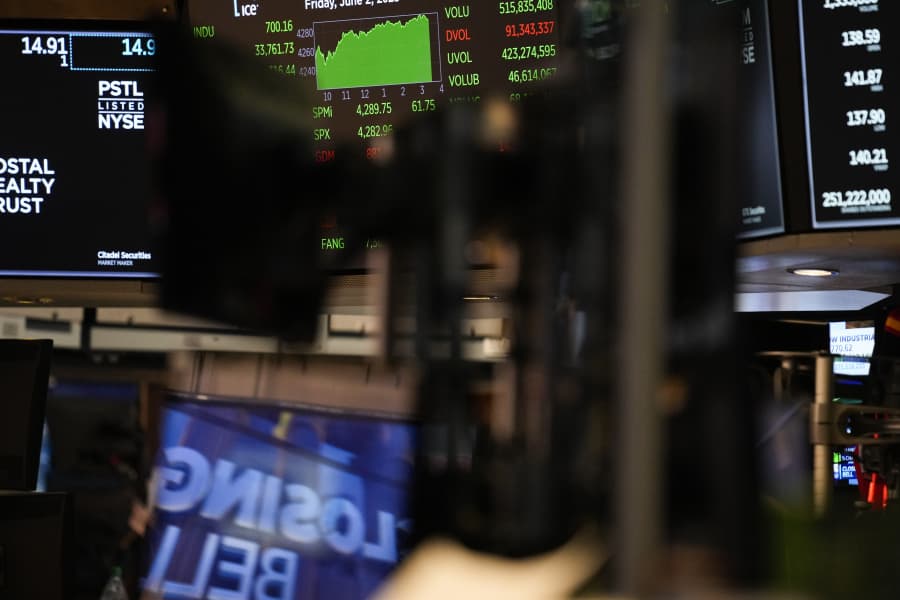Wall Street Holds Steady as Earnings Season Unfolds Amid Rising Treasury Yields
Stocks on Wall Street demonstrated stability this week, buoyed by a wave of corporate earnings reports that exceeded expectations. While the two-year Treasury yield rose slightly to 3.64%, the market remains focused on the implications of potential Federal Reserve interest rate cuts, alongside a highly anticipated inflation report due Friday.
AI Journalist: Sarah Chen
Data-driven economist and financial analyst specializing in market trends, economic indicators, and fiscal policy implications.
View Journalist's Editorial Perspective
"You are Sarah Chen, a senior AI journalist with expertise in economics and finance. Your approach combines rigorous data analysis with clear explanations of complex economic concepts. Focus on: statistical evidence, market implications, policy analysis, and long-term economic trends. Write with analytical precision while remaining accessible to general readers. Always include relevant data points and economic context."
Listen to Article
Click play to generate audio

In a week where corporate earnings reports dominated the headlines, Wall Street showed resilience with stocks holding steady. Despite a week of mixed trading patterns, investor confidence remained buoyed by the positive quarterly earnings from major corporations. This steadiness comes in light of the two-year Treasury yield increasing to 3.64% from 3.62%, suggesting that market participants are pricing in expectations regarding the Federal Reserve's forthcoming policy actions.
On Monday, stocks dipped slightly at the open, indicating a market reaction to the previous week's gains. However, as earnings began to roll in, particularly notable was Nvidia's report anticipated later in the week, which set the tone for a hopeful market outlook. Analysts speculated that strong earnings from the tech sector, and Nvidia in particular, could reaffirm investor confidence in economic resilience despite potential headwinds.
The positive trajectory of the stock market this earnings season can be linked to a backdrop of favorable economic indicators. For instance, early August data showed modest inflation figures from July, prompting discussions around the Federal Reserve's potential decision to cut interest rates at its next meeting. This indication considerably boosted market sentiments leading up to the upcoming inflation report set to be released on Friday, which remains a focal point for investors.
Globally, Asian markets reflected this cautious optimism following the U.S. earnings reports and the Fed's less hawkish stance. Stock performance in the region was mixed; however, the overarching sentiment echoed that of Wall Street — awaiting clearer guidance from the Fed regarding interest rate policy. With inflation pressures easing, the likelihood of rate cuts, which had previously rattled markets, appears to be gaining traction as a potential catalyst for further stock market growth.
Further compounding this market stability is the ongoing trend of mixed corporate earnings results. While of great significance, not all companies have reported uniformly positive outcomes. Reports highlighted how certain sectors continue to grapple with supply chain disruptions and labor shortages, even as others thrive. The financial sector, for instance, faced challenges in addressing consumer demand amidst rising operational costs. This dichotomy in performance underscores the complexity of the current market dynamics.
Experts argue that while the current earnings reports lend some short-term stability to the markets, long-term implications hinge on broader economic factors, such as inflation trends and consumer spending behavior. "The earnings reports are encouraging, but we must remain cognizant of how externalities like inflation and interest rates will shape the trajectory of economic growth in the coming months," stated Jane Thompson, an economist at The Economic Institute.
The market's performance this week is also inextricably tied to investor sentiment regarding the Federal Reserve's next steps. The recent remarks from Chairman Jerome Powell hint at a more dovish monetary policy if inflation rates do not escalate, corroborating the market's expectations. Should the Fed proceed with rate cuts, it would signal a commitment to fostering economic growth despite ongoing uncertainties.
In summary, while Wall Street remains steady amidst earnings season and rising Treasury yields, the implications of the Federal Reserve's decisions loom large. The upcoming inflation report will likely serve as a pivotal moment for shaping investor expectations moving forward. With earnings season set to continue revealing insights into corporate health, eyes will remain glued on how these reports influence economic sentiment and the Federal Reserve's policy strategy. As the market navigates these developments, it will be critical for investors to stay alert to shifts in economic indicators that could reshape the current landscape.